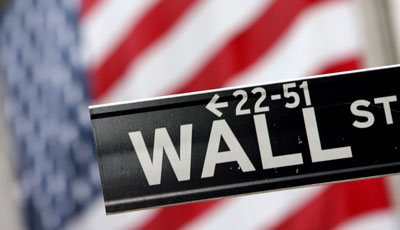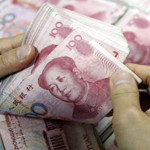Commodities Trader Found Guilty in ‘Spoofing’ Case

Michael Coscia faces up to 25 years in prison with sentencing scheduled for March
A Chicago jury found a New Jersey-based commodities trader guilty of 12 counts of fraud and manipulating the futures market on Tuesday in a major win for government prosecutors seeking to crack down on illegal trading tactics.
It was the first criminal case against a trader who used a bluffing strategy called spoofing,which has come under an increased focus this year from regulators and law enforcement.
Michael Coscia, head of a high-frequency trading firm called Panther Energy Trading LLC, had argued in court this week that his trading was genuine and not meant to improperly influence the price of futures contracts on the Chicago Mercantile Exchange.
“We’re disappointed by the verdict,” said Steven Peikin, one of his defense lawyers. “We believe this case presents many novel and complex issues, and Mr. Coscia intends to pursue all of his legal options.”
Mr. Coscia faces up to 25 years in prison. His sentencing is scheduled for March 2017.
The verdict could have a “chilling effect” on the futures trading world because many considered the definition of spoofing to be too vague to be properly enforced, said Trace Schmeltz, a partner at the law firm Barnes & Thornburg LLP in Chicago who has closely followed spoofing cases.
“I think this case gives the market a lot more guidance on what will and will not fly,” he said. “Seeing someone go to prison is not encouraging to operate in grey areas.”
The trades at the center of the case against Mr. Coscia took place largely in 2011 and earned him $1.6 million in the U.S. and Europe, according to prosecutors.
Mr. Coscia, 53 years old, settled civil charges from the Commodity Futures Trading Commission on the same allegations in 2013. He agreed to pay $2.8 million and accept a one-year trading ban. He didn’t admit or deny the charges.
Spoofing is an age-old tactic used by some traders in a range of markets. In its most basic version, a trader puts in large orders to buy or sell contracts, though he doesn’t actually intend to execute those orders. The purpose is to give others a misleading sense that the price might be going up or down, which causes them to change their orders. The spoofer then takes advantage of them to make a profit.
The 2010 Dodd-Frank financial-overhaul law explicitly outlawed it for the first time and exchanges subsequently put out clarifications orders can’t be entered if a trader doesn’t intend to execute them.
There have several high-profile spoofing cases since Mr. Coscia’s began. In April, the CFTC and Justice Department brought spoofing charges against a London trader named Navinder Sarao who they alleged helped cause the “flash crash” in May 2010, a 1,000-point plunge in the Dow Jones Industrial Average. Mr. Sarao has denied all the charges against him and is fighting extradition to the U.S.
Last month, the CFTC accused another Chicago trader, Igor Oystacher, and his trading company 3Red Trading LLC of spoofing futures markets between December 2011 and January 2014. He has denied the charges.
Mr. Oystacher’s spokesman last month said the “CFTC has oversimplified complex trading and is now trying to classify legitimate trading and risk management as a market infraction.”
Source: WSJ – Commodities Trader Found Guilty in ‘Spoofing’ Case





























